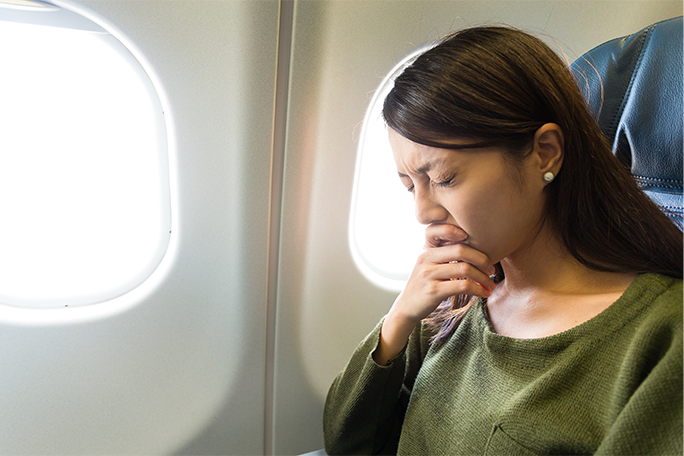Rockwell MD | Seattle, WA

Whether you’re a seasoned traveler or embarking on a new adventure, the prospect of exploring new places can be exhilarating. However, for those with ear, nose, and throat (ENT) concerns, travel can bring about unique challenges. In this guide, we’ll explore precautions and offer practical tips to ensure a smooth journey for individuals with ENT issues.
Prepare for Changes in Air Pressure
Flying poses specific challenges for individuals with ear concerns, such as ear infections or eustachian tube dysfunction. The change in air pressure during takeoff and landing can cause discomfort or exacerbate existing issues.
Tip: Consider using specialized earplugs designed for air travel to regulate pressure changes. Chewing gum or swallowing during ascent and descent can also help equalize ear pressure.
Combat Dry Air and Hydrate
Airplane cabins are notorious for dry air, which can affect nasal passages and throat. Individuals with conditions like sinusitis or dry throat should take extra precautions.
Tip: Stay hydrated by drinking water regularly. Use a saline nasal spray to keep nasal passages moist, and consider using a throat lozenge to soothe a dry throat.
Pack Essentials for Sinus Health
Changes in climate or altitude can trigger sinus issues. Be prepared with a travel kit specifically tailored to sinus care.
Tip: Include saline nasal spray, decongestant medication (if prescribed), and a sinus rinse kit in your travel essentials. These items can help manage sinus congestion and prevent discomfort.
Choose Accommodations Wisely
When booking accommodations, consider factors that can impact your sleep quality and overall well-being, especially if you have concerns like snoring or sleep apnea.
Tip: Opt for well-ventilated rooms and inquire about the availability of hypoallergenic bedding. If you use a continuous positive airway pressure (CPAP) machine for sleep apnea, ensure your accommodation can accommodate your needs.
Guard Against Allergens
Traveling exposes you to new environments, and allergens can be a significant concern for individuals with allergies or sensitivities.
Tip: Research your destination’s allergen levels and pack necessary medications. Consider using a travel-sized air purifier in hotel rooms to minimize exposure to potential allergens.
Plan for Altitude Changes
For those with conditions like vertigo, altitude changes can pose challenges.
Tip: If your travel involves significant altitude changes, plan your itinerary to allow for gradual acclimatization. Stay well-hydrated and avoid excessive alcohol consumption, which can exacerbate symptoms.
With thoughtful planning and precautions, individuals with ear, nose, and throat concerns can enjoy seamless and enjoyable travel experiences. By addressing specific challenges associated with ENT issues, you can focus on creating lasting memories and exploring the wonders the world has to offer.
For more than 25 years, Dr. Rockwell has been dedicated to diagnosing and treating ear, nose, and throat concerns in the Seattle area. If you or your family are experiencing persistent or worrisome symptoms, we invite you to schedule a visit with us. Our commitment to providing high-quality medical care with compassion has made our Seattle-based practice a trusted choice for families for over two decades. Contact us to secure your appointment and take the first step towards enhancing your well-being.
James C. Rockwell, M.D., F.A.C.S.
1-888-624-3561
Mon-Thurs 9-4 pm